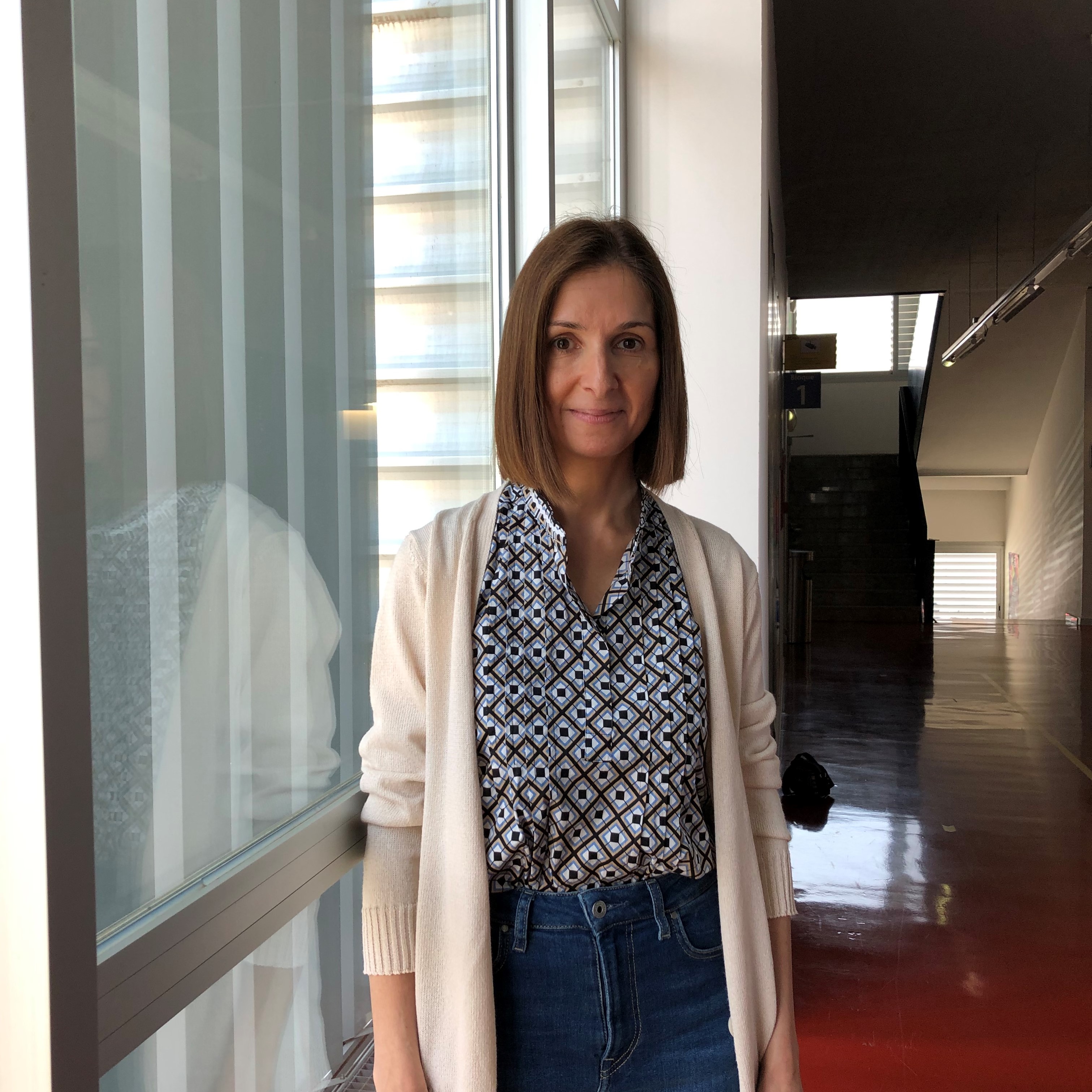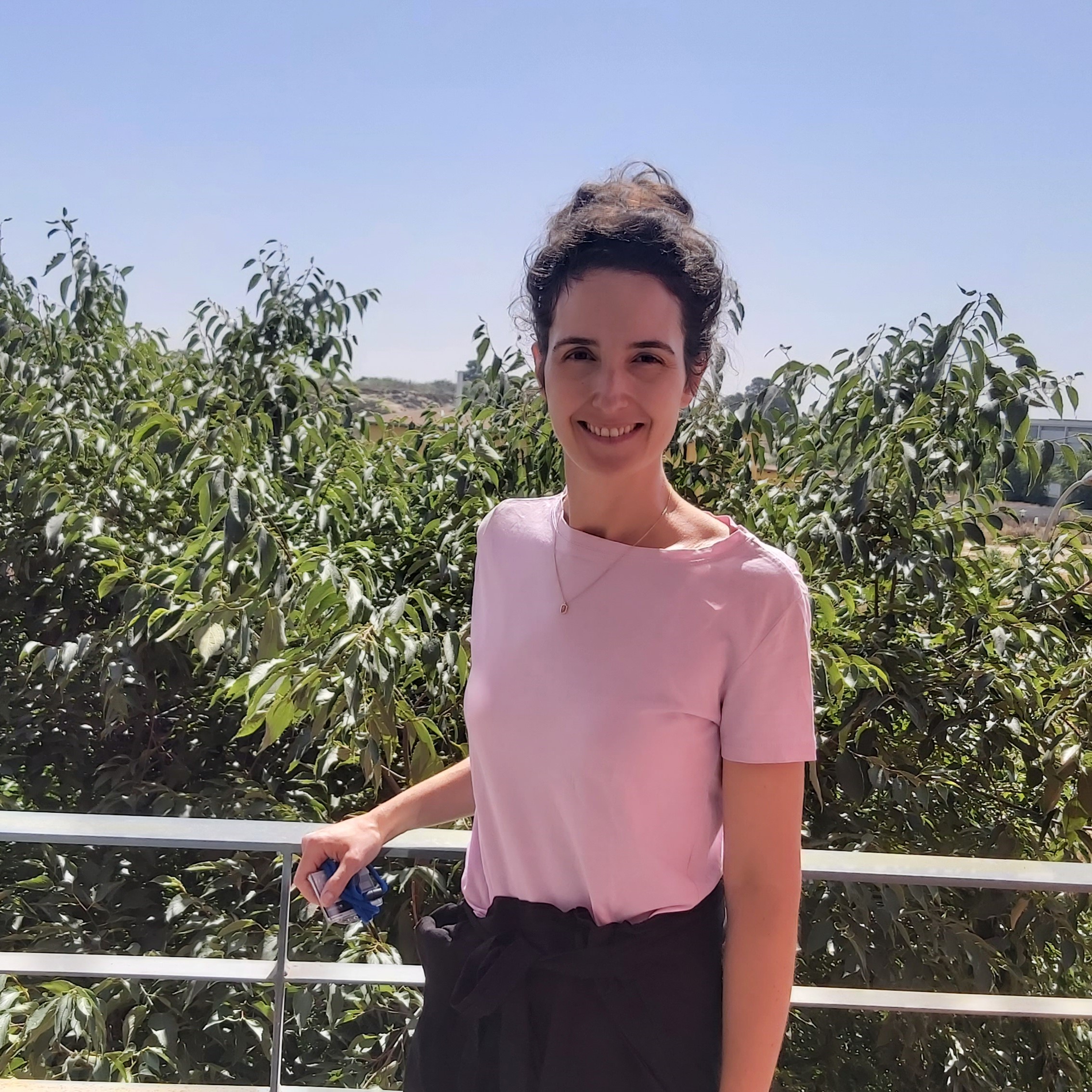
Why did you decide to go into research?
When I finished my degree I did a research thesis in the Department of Mathematics, in the area of Mathematical Analysis. I realised that I liked discovering new things and new methods to better understand the problems we had to solve. Then Pablo Laguna published an offer for a pre-doctoral contract associated with a research project, I contacted him, he gave me the opportunity and that's how I started in the field of research.
What subjects do you teach?
I teach Mathematics for Telecommunications on the Bachelor's Degree in Telecommunications Technologies and Services Engineering, and Bioelectricity and Electrophysiology on the Master's Degree in Biomedical Engineering.
You are the principal investigator of the BSICoS group, what are your main lines of research?
We develop mathematical and engineering tools to better understand how the cardiovascular system works. In our group we work with the heart, the respiratory system and the autonomic nervous system. We develop signal processing algorithms, image processing algorithms and mathematical models that we then simulate on the computer. In addition, we always work together with clinical groups. We transfer our research to hospitals for the benefit of society. For example, we collaborate with the Hospital Clínico and the Miguel Servet Hospital in Zaragoza.
Any ongoing project that you would like to highlight.
We have quite a few interesting ones in the group, for example, we have a project on digital twins. This consists of building virtual replicas of the heart in order to better understand which patients who have suffered a myocardial infarction have a higher risk of suffering sudden cardiac death. Or also for patients who have cardiomyopathies, who are born with a heart defect, and that makes them more susceptible to heart problems. We have another very interesting project with which we are trying to better understand how to design the way to stimulate with a pacemaker, so that patients recover the physiological way of conducting the electrical impulse of a healthy heart.
We hope to transfer it for the benefit of society.
How long have you been involved with the I3A?
Since its beginnings in 2002.
What would you highlight about the Institute?
On the one hand, the possibility of working with other groups at the I3A and carrying out joint collaborations. We are participating in a European project and in several national projects with various groups at the Institute. And also all the services it offers us, which help researchers a lot.
What do you like most about your profession and what do you like least?
What I like most is the possibility of doing research in new areas and new problems. What I like least is the bureaucracy that is often associated with research.
What would you say to someone who is thinking of going into research?
I would tell them that the road is not going to be easy, but if they like it, it is well worth trying. People should do what like most and that he shouldn't mind spending time on it because in the long run the reward
is very satisfying.
FROM CLOSE...
What did you study: Mathematics at the Faculty of Science.
A goal: To continue doing research and to be able to transfer it so that it benefits society.
An author: Soledad Puértolas or Paul Auster.
A film: All about my mother.
Hobbies: Reading, travelling and what I like most, being with my children and my nephews and nieces.
Favourite musical group: The Beatles.
A trip: New York or Berlin.
How would you define yourself: As a person who is eager to learn.
